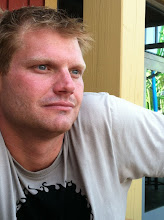The more you get people around the world talking to each other, great, and the more they talk about what they’re learning, just wonderful...But I’m not at all sure, when you start attaching that to credits and degrees and courses, that it translates so well.
How will they test students? How much will the professors do? How well does the American or British curriculum serve the needs of people in Mali? How do they handle students whose English is not at college level?
-- Philip G. Altbach, director of the Center for International Higher Education at Boston College
It just doesn't seem like this guy wants anything to change, which isn't surprising, since he was a beneficiary of the system. What do you think? Can't students decide what they want to learn, won't that spark curiousity and creativity, and wouldn't a social network provide a far broader range of expertise than any university ever could? Which pushes us to think harder, a test or an online discussion with curious peers? We could work out accountability somehow.
I'm worried our higher education system exists primarily to serve professors. I think that a 21st century, online university, built around social networking could allow professors to spend more time doing what they want to be doing...research..and less time doing what, judging by their boring lesson structure coupled with unenthusiastic delivery, they apparently only do out of obligation...teach.

No comments:
Post a Comment